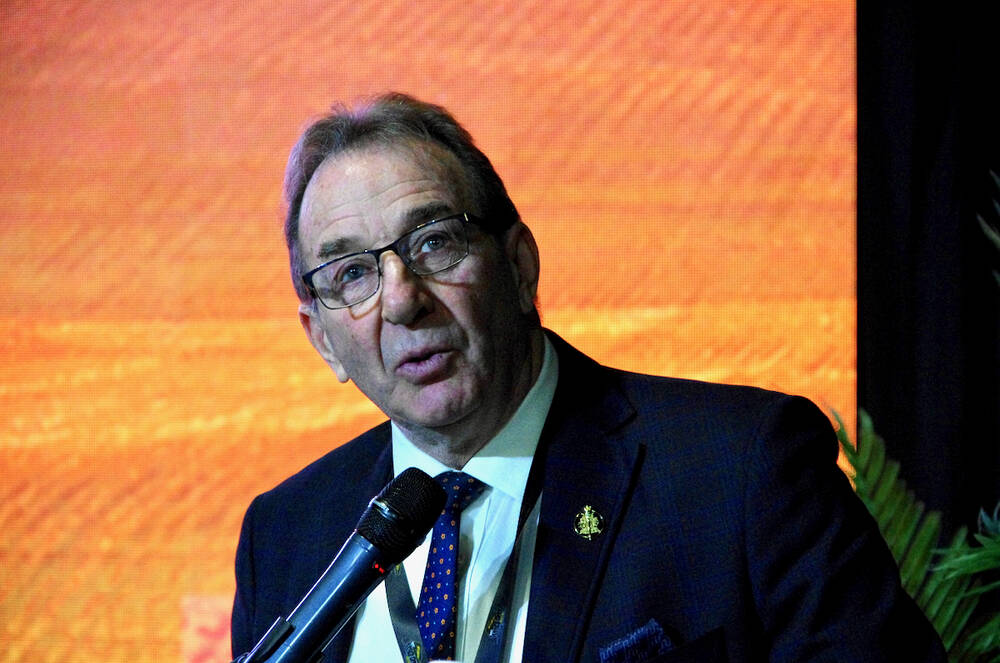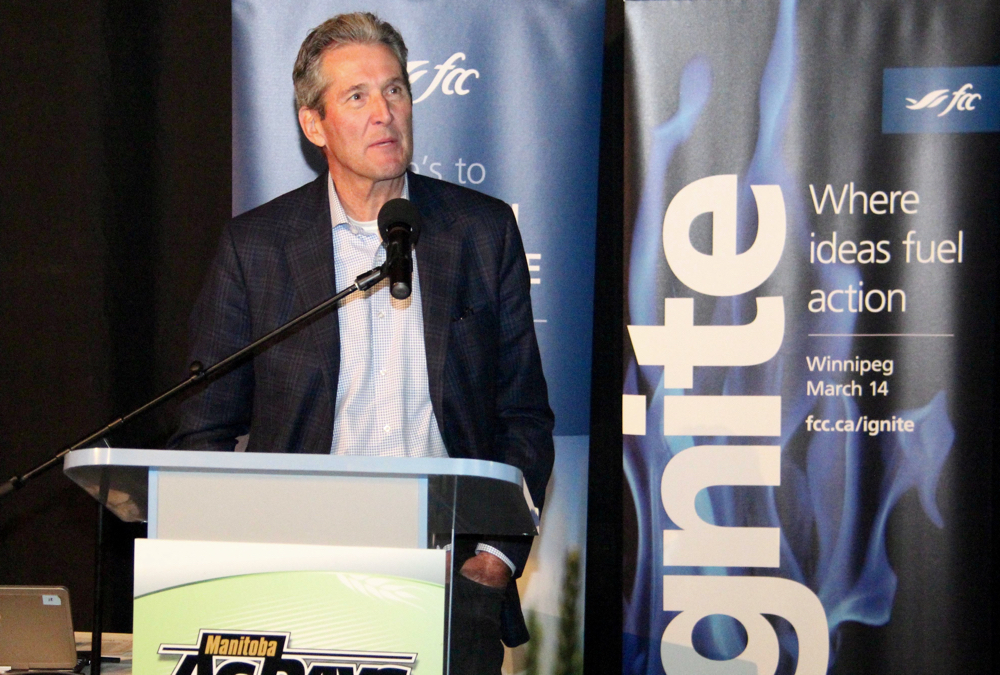The Manitoba government is still working on its climate change plan, agriculture minister Ralph Eichler and Premier Brian Pallister told reporters during separate scrums at Ag Days, Jan. 17.
Before Christmas Eichler said the plan would be revealed early this year.
“We only have one chance to do this,” Eichler said.
“That is why a made-in-Manitoba solution is a priority for our government in order to ensure that we get it right.”
Eichler also said the plan will recognize Manitoba farmers are price-takers and must be competitive in world markets.
Read Also

AgriStability enrolment deadline extended
The deadline for Manitoba farmers to enroll in the AgriStability business risk management program has been extended by three months agriculture minister Ron Kostyshyn announced on Friday.
“We get that,” he said. “But we know it (climate change) is a problem. Look outside now it is +1. Pretty nice weather. What’s the change? It is us. The climate is changing. We have to adapt. Everyone of us here has to be part of that solution.”
Flooding is part of climate change Manitoba Premier Brian Pallister, said in a news release Jan. 17
“This is a challenge we must face together, ensuring we farm the best land better while allowing water to be retained in places that make sense,” Pallister said, seemingly hinting at a program that hasn’t been announced. “This will provide protection, not only for our communities downstream, but also for the agricultural producers who help feed Manitobans and countless others around the world.”
Asked about the water strategy the province is developing, Eichler said it’s going through the government’s planning and priorities process.
“We talk about water all the time,” Eichler said. “It is one of those things. We talk about water quality and water quantity.”
Pallister, who also spoke at Ag Days, told reporters Manitoba will develop its own plan to mitigate climate change rather than have a plan imposed by Ottawa.
If provinces don’t price carbon emissions, the federal government has said it will impose a $10 a tonne cost on carbon starting in 2018, rising to $50 by 2020.
“We are trying really, really hard to find a plan that will work best for Manitoba,” Pallister said.
“We will do our part for the environment, but doing it in a way that doesn’t jeopardize our economic progress as a people either.
“Manitoba has always punched above its weight. We will do our part, but we want to make sure our plan suits Manitoba.”
Asked if that means putting a price on carbon Pallister replied: “We have already said that. It is a question of how it is done. It’s not a question of ‘if’, because the federal government has taken the question of ‘if’ right off the table. But it’s not going to be a cap-and-trade plan. All that will do in my estimation is ship money out of Manitoba and send it to California. We don’t need to do that.”




















